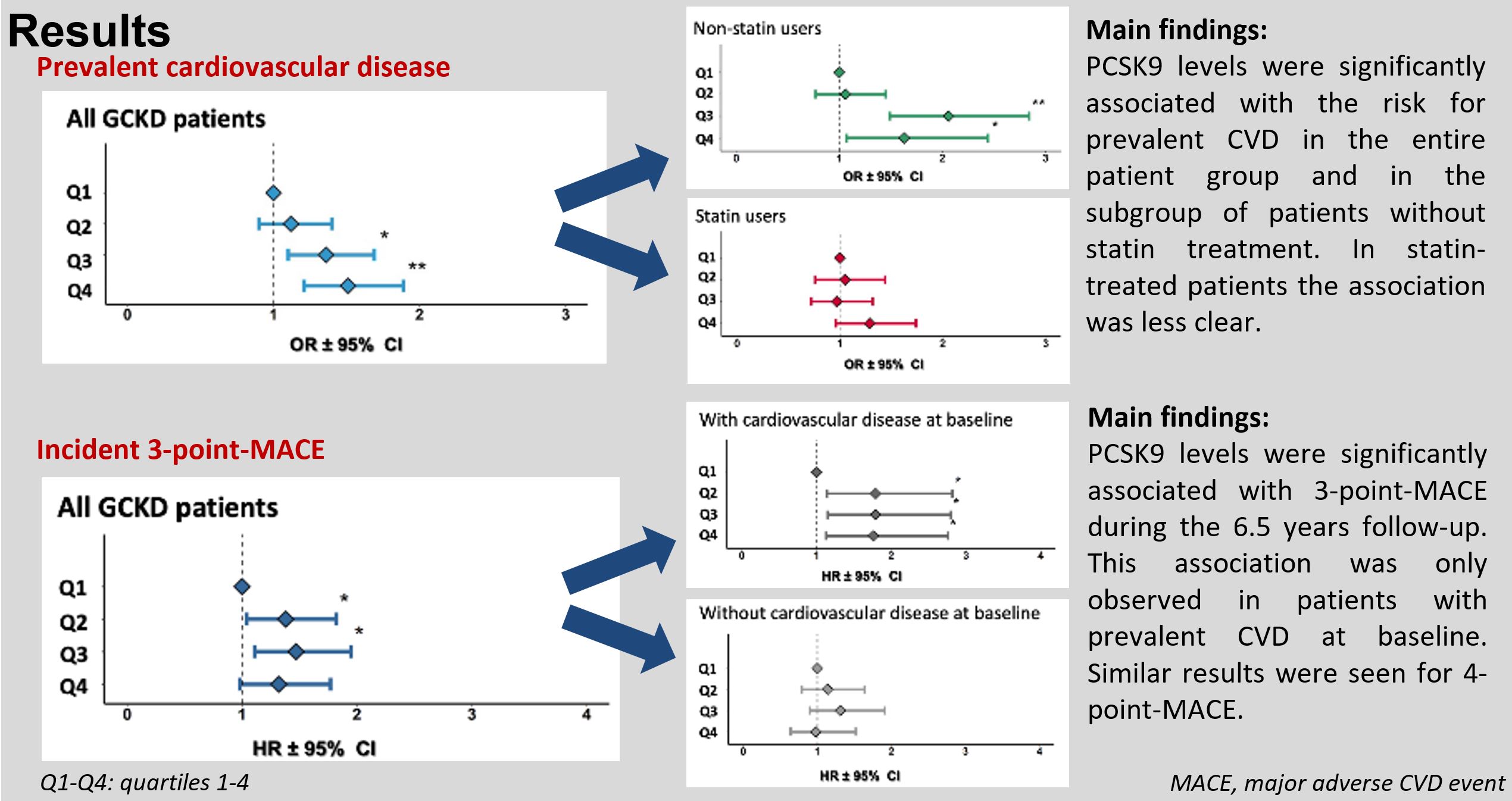PCSK9
Members
Principal Investigator (PI)
Team
Azin Kheirkhah , Johanna Schachtl-Rieß , Claudia Lamina , Barbara Kollerits , Lukas Forer
About
The role of proprotein convertase subtilisin/kexin type 9 (PCSK9) in lipid homeostasis has been discovered less than two decades ago. It is meanwhile well established that PCSK9 is a key regulator of serum low-density lipoprotein cholesterol (LDL-C) levels. PCSK9 hinders the uptake of LDL-C by targeting LDL receptors on the surface of hepatocytes for lysosomal degradation. PCSK9 inhibitors can decrease LDL-C levels by 60% and strongly reduce the risk of cardiovascular events. Our group aims to better understand the role of PCSK9 in patients with cardiovascular disease as well as kidney disease.
PCSK9 and cardiovascular disease in patients with moderately decreased kidney function
Only few and mostly small studies with contradicting results have investigated the association between PCSK9 serum concentrations and cardiovascular outcomes in chronic kidney disease (CKD) patients. In a prospective study in more than 5000 high-risk patients with moderately severe CKD from the German Chronic Kidney Disease study followed for 6.5 years we observed that higher baseline serum PCSK9 concentrations are associated with prevalent and incident cardiovascular disease independent of major confounders (see Figure 1). This observation argues for a pronounced lipid-lowering therapy especially in patients with prevalent CVD (Kheirkhah et al.: Clin. J. Am. Soc. Nephrol. 2022).

PCSK9 in patients with peripheral arterial disease
We measured serum PCSK9, lipoprotein(a) and other lipoprotein concentrations in 248 male patients with intermittent claudication and 251 age and diabetes-matched controls from the CAVASIC study. Patients had significantly higher PCSK9 concentrations when compared to controls. The strongest association was observed when both PCSK9 concentrations were above the median and Lp(a) concentrations were above 30 mg/dL (OR = 3.35, 95%CI 1.49–7.71, p = 0.0038). Our findings suggest an association of higher PCSK9 concentrations with PAD, which was independent of other lipid parameters and classical cardiovascular risk factors.
Cooperations
GCKD study, CAVASIC study
Publications
Kheirkhah A, Lamina C, Kollerits B, Schachtl-Riess JF, Schultheiss UT, Forer L, Sekula P, Kotsis F, Eckardt KU, Kronenberg F, GCKD Investigators: PCSK9 and cardiovascular disease in individuals with moderately decreased kidney function. Clin. J. Am. Soc. Nephrol. 17:809-818, 2022. PMID: 35387881 Journal Article
Kheirkhah A, Lamina C, Rantner B, Kollerits B, Stadler M, Pohlhammer J, Klein-Weigel P, Fraedrich G, Kronenberg F: Elevated levels of serum PCSK9 in male patients with symptomatic peripheral artery disease: The CAVASIC study. Atherosclerosis 316:41-47, 2021. PMID: 33302043 Journal Article